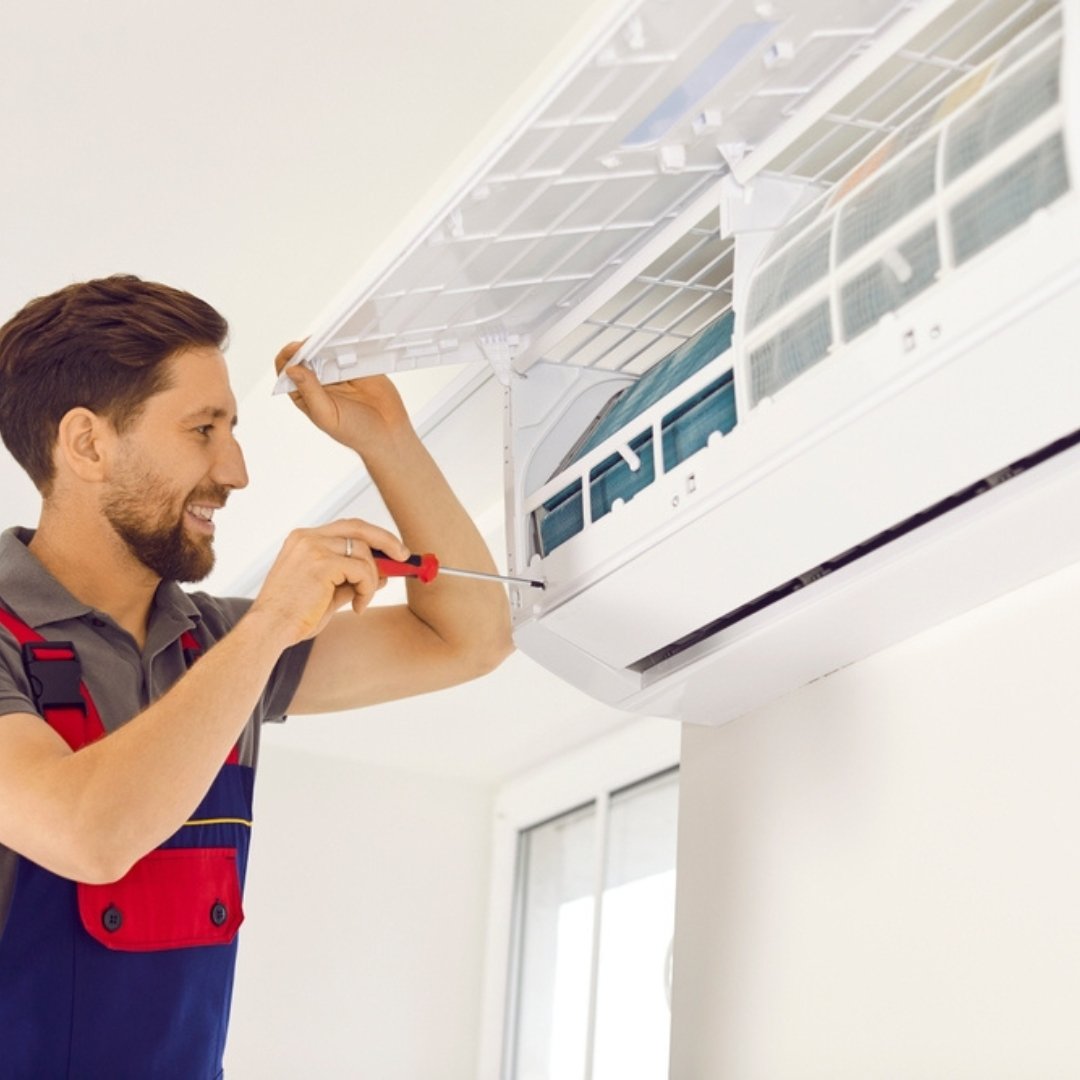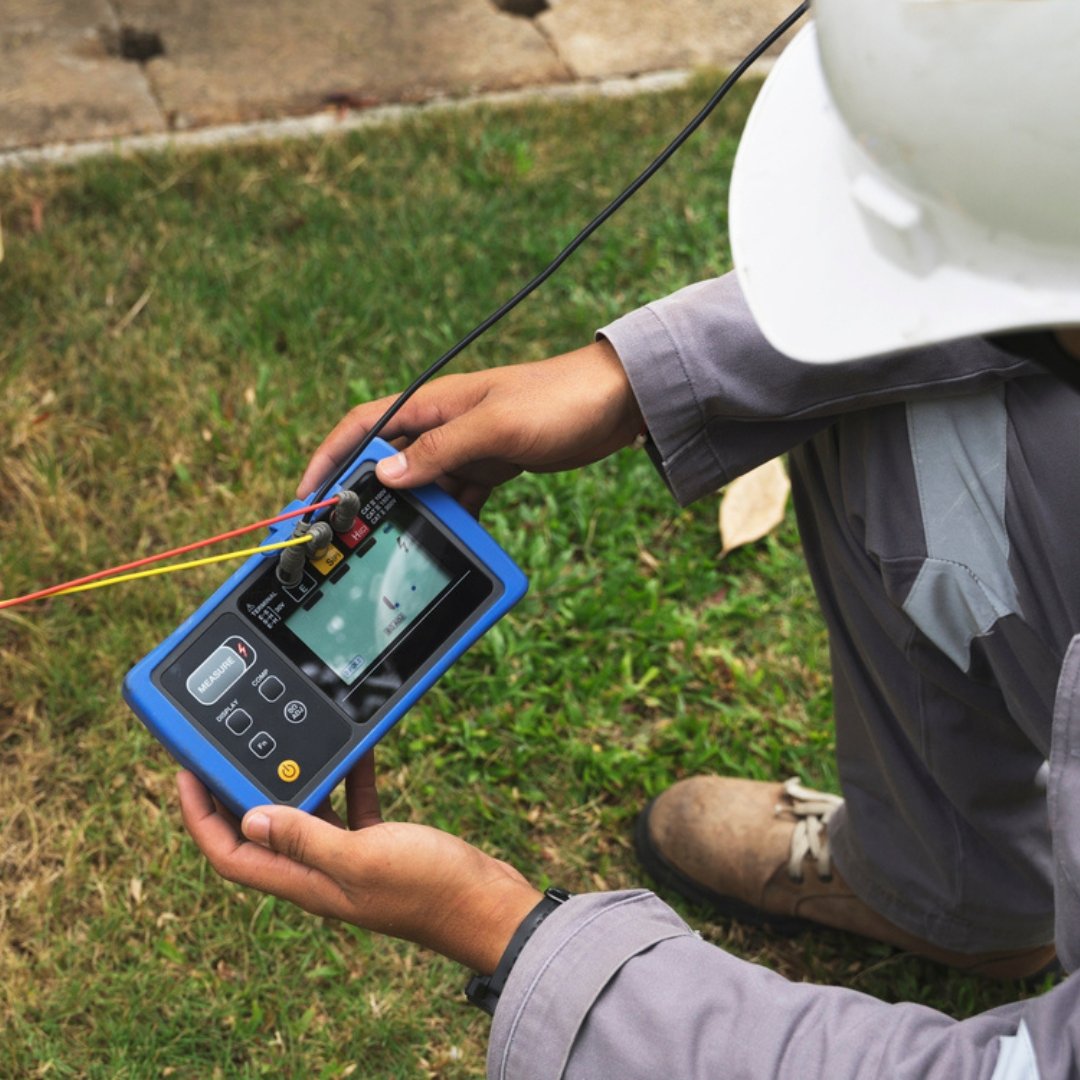How Often Should You Test Your Home Microwave?
The microwave oven has become one of the most indispensable appliances in modern kitchens. From heating leftovers to preparing quick meals, it saves time and effort every single day. But like all electrical devices, it is not just about convenience—it’s also about safety. A well-maintained microwave is safe to use, but one with worn-out parts or hidden faults could pose risks. That’s why microwave testing is crucial.
So, how often should you test your home microwave, and what exactly should you look for? Let’s dive deeper. To Know More Click Here
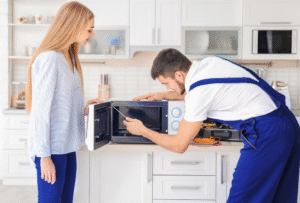
Why Is Microwave Testing Necessary?
Microwaves work by generating electromagnetic radiation to heat food. Normally, this radiation is contained inside the appliance by protective shielding and door seals. However, if these seals wear out or if the door doesn’t close properly, radiation could leak out. While the levels may not always be harmful, prolonged exposure is not advisable.
Apart from radiation concerns, testing also helps in:
- Identifying electrical faults that could lead to short circuits or fire hazards.
- Ensuring energy efficiency by confirming that the microwave is heating food evenly.
- Prolonging the appliance’s life by catching issues early before they worsen.
In short, microwave testing is about safety, efficiency, and reliability. To Know More Click Here

Warning Signs Your Microwave Needs Testing
Not every microwave problem is visible. However, these signs should alert you to schedule a test immediately:
- Door Seal Damage: Cracks, dirt buildup, or warping around the seal.
- Door Not Closing Securely: Even a small gap can cause leakage.
- Odd Sounds or Sparks: Clicking, buzzing, or sparking is never normal.
- Uneven Heating: If food remains cold in spots, the magnetron may not be working correctly.
- Unusual Smells: Burning or melting odors suggest internal issues.
- Excessive Heat Outside: If the microwave exterior gets unusually hot, it could be a safety hazard.
If you notice any of these, don’t wait for your next scheduled test—get it checked immediately.
How Often Should You Test Your Microwave?
The recommended frequency depends on the age, usage, and condition of your microwave:
- New Microwaves (1–3 years old): Test every 2 years, unless you spot a problem.
- Older Microwaves (5+ years old): Test annually, as parts like seals and hinges weaken with time.
- Heavy Usage (large families, daily cooking): Test once a year to be safe.
- Light Usage (occasional reheating): Testing every 2 years is generally fine.
Think of it like a medical check-up—the older and busier your microwave, the more frequently it needs a check. To Know More Click Here
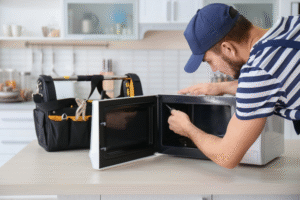
DIY Microwave Safety Checks vs. Professional Testing
DIY Checks You Can Do Regularly:
- Inspect door seals and hinges for cracks or wear.
- Keep the interior clean to prevent sparks from food residue.
- Avoid slamming the door, which can damage the locking system.
- Use microwave-safe containers to prevent fires.
Professional Testing Includes:
- Microwave Leakage Test: Detects any radiation escaping from the unit.
- Electrical Safety Test: Ensures no risk of electric shocks or fire hazards.
- Performance Check: Confirms even heating and energy efficiency.
For accurate results, professional testing is the only reliable option.
Tips to Extend Your Microwave’s Lifespan
Taking care of your microwave not only ensures safety but also saves money in the long run:
- Never run the microwave empty—it can damage the magnetron.
- Wipe spills immediately to avoid buildup.
- Do not use metal or foil inside the oven.
- Replace worn-out door seals promptly.
- Always follow the manufacturer’s maintenance guidelines. To Know More Click Here
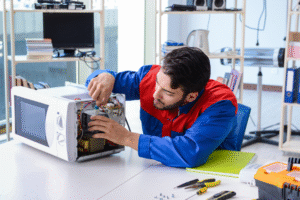
Conclusion
Your home microwave may seem like a simple convenience, but it’s also a powerful appliance that needs attention. Regular testing ensures it remains safe, reliable, and efficient.
- General Rule: Test every two years, or annually if it’s older or heavily used.
- Immediate Testing: If you notice damaged seals, sparks, or odd behavior.
By treating your microwave to regular check-ups, you not only protect your family from potential hazards but also extend the life of one of your most trusted kitchen companions.
SafeTag – Your Safety Partner in New Zealand
Ensure workplace safety and compliance with SafeTag’s professional testing services. We offer certified solutions for Electrical Testing & Tagging, RCD Testing, Microwave Leakage Testing, and Portable Appliance Testing (PAT). Trust our experts for hassle-free, on-site service tailored to your business needs.


